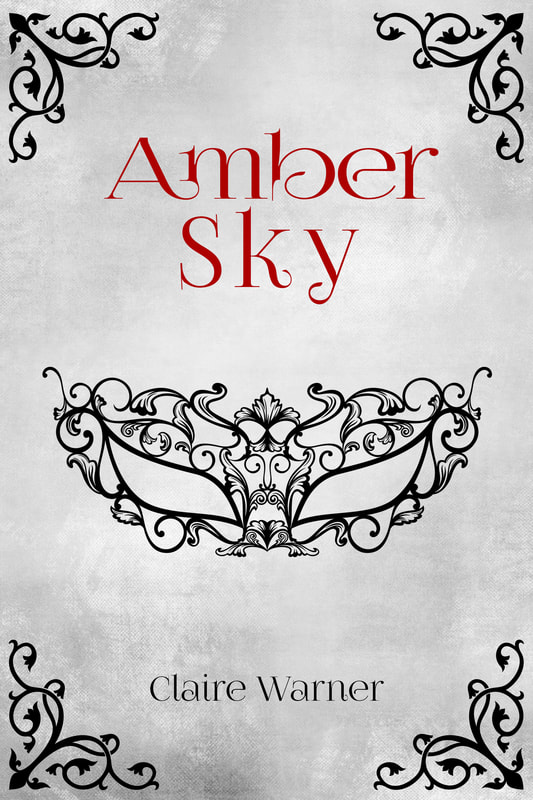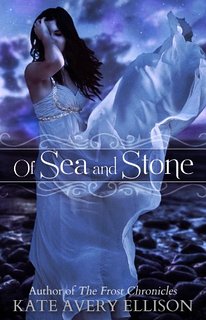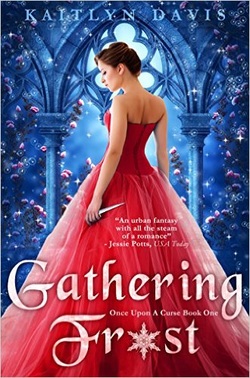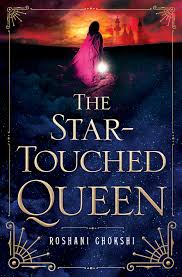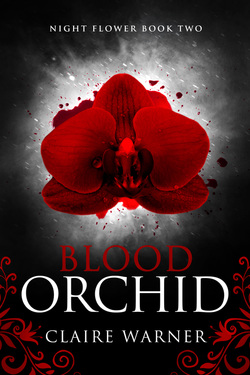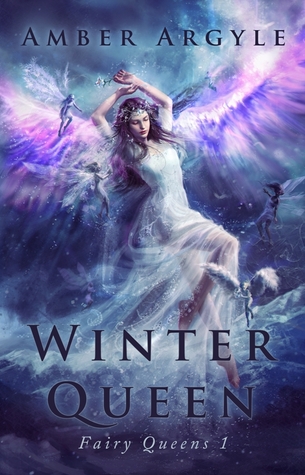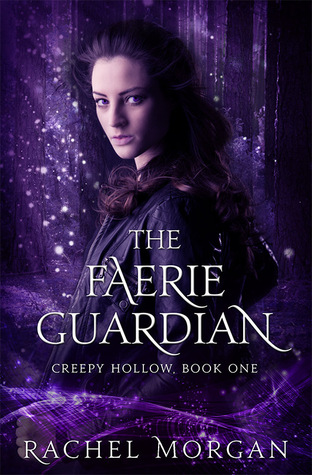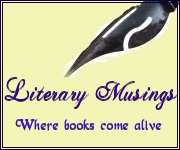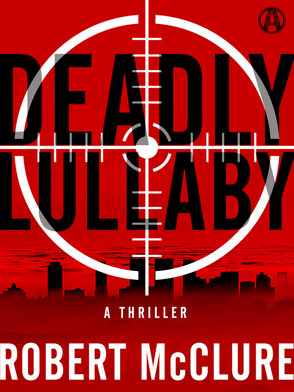
About the Book
Title: Deadly Lullaby
Author: Robert McClure
Genre: Thriller / Suspense
For readers of Harlan Coben and Robert Crais, Robert McClure’s rollicking crime novel of family and felony takes readers on a relentless thrill ride through the L.A. underworld.
Fresh off a nine-year stint in San Quentin, career hitman Babe Crucci plans to finally go straight and enjoy all life has to offer—after he pulls one or two more jobs to shore up his retirement fund. More than anything, Babe is dead set on making up for lost time with his estranged son, Leo, who just so happens to be a rising star in the LAPD.
The road to reconciliation starts with tickets to a Dodgers game. But first, Leo needs a little help settling a beef over some gambling debts owed to a local mobster. This kind of thing is child’s play for Babe–until a sudden twist in the negotiations leads to a string of corpses and a titanic power shift in gangland politics. With the sins of his father piling up and dragging him down, Leo throws himself into the investigation of a young prostitute’s murder, a case that makes him some unlikely friends—and some brutally unpredictable enemies.
Caught up in a clash of crime lords, weaving past thugs with flamethrowers who expend lives like pocket change, Babe and Leo have one last chance to face the ghosts of their past—if they want to live long enough to see their future.
Title: Deadly Lullaby
Author: Robert McClure
Genre: Thriller / Suspense
For readers of Harlan Coben and Robert Crais, Robert McClure’s rollicking crime novel of family and felony takes readers on a relentless thrill ride through the L.A. underworld.
Fresh off a nine-year stint in San Quentin, career hitman Babe Crucci plans to finally go straight and enjoy all life has to offer—after he pulls one or two more jobs to shore up his retirement fund. More than anything, Babe is dead set on making up for lost time with his estranged son, Leo, who just so happens to be a rising star in the LAPD.
The road to reconciliation starts with tickets to a Dodgers game. But first, Leo needs a little help settling a beef over some gambling debts owed to a local mobster. This kind of thing is child’s play for Babe–until a sudden twist in the negotiations leads to a string of corpses and a titanic power shift in gangland politics. With the sins of his father piling up and dragging him down, Leo throws himself into the investigation of a young prostitute’s murder, a case that makes him some unlikely friends—and some brutally unpredictable enemies.
Caught up in a clash of crime lords, weaving past thugs with flamethrowers who expend lives like pocket change, Babe and Leo have one last chance to face the ghosts of their past—if they want to live long enough to see their future.
Author Bio
Robert McClure read pulp fiction as a kid when he should have been studying, but ultimately cracked down enough to obtain a bachelor's in criminology from Murray State University and a law degree from the University of Louisville. He is now an attorney and crime fiction writer who lives and works in Louisville, Kentucky. His story "My Son" appeared in The Best American Mystery Stories, and he has had other works published in MudRock: Stories & Tales, Hardboiled, Thug Lit, and Plots with Guns.
Links
Amazon: http://www.amazon.com/gp/product/B00TNDOYL6?tag=randohouseinc7986-20
B&N: http://www.barnesandnoble.com/w/deadly-lullaby-robert-mcclure/1121229304?ean=9781101884980&cm_mmc=AFFILIATES-_-Linkshare-_-VD9*lkiWNd8-_-10:1
Books-a-Million: http://www.booksamillion.com/search?query=9781101884980&AID=10876509&PID=2665379&SID=PRHEFFDF5A7F1--9781101884980&where=eBooks
Google Play: https://play.google.com/store/search?q=9781101884980&c=books
iBooks: https://itunes.apple.com/us/book/deadly-lullaby/id993474454?mt=11
Penguin Random House: http://www.penguinrandomhouse.com/books/251406/deadly-lullaby-by-robert-mcclure/
Robert McClure read pulp fiction as a kid when he should have been studying, but ultimately cracked down enough to obtain a bachelor's in criminology from Murray State University and a law degree from the University of Louisville. He is now an attorney and crime fiction writer who lives and works in Louisville, Kentucky. His story "My Son" appeared in The Best American Mystery Stories, and he has had other works published in MudRock: Stories & Tales, Hardboiled, Thug Lit, and Plots with Guns.
Links
Amazon: http://www.amazon.com/gp/product/B00TNDOYL6?tag=randohouseinc7986-20
B&N: http://www.barnesandnoble.com/w/deadly-lullaby-robert-mcclure/1121229304?ean=9781101884980&cm_mmc=AFFILIATES-_-Linkshare-_-VD9*lkiWNd8-_-10:1
Books-a-Million: http://www.booksamillion.com/search?query=9781101884980&AID=10876509&PID=2665379&SID=PRHEFFDF5A7F1--9781101884980&where=eBooks
Google Play: https://play.google.com/store/search?q=9781101884980&c=books
iBooks: https://itunes.apple.com/us/book/deadly-lullaby/id993474454?mt=11
Penguin Random House: http://www.penguinrandomhouse.com/books/251406/deadly-lullaby-by-robert-mcclure/
Interview
Where do you get your ideas?
Difficult question. The process is always different in the gory details, but in the beginning I always ask myself: “What do I want to read that no one has ever written?” I can tell you how one story formed in my head, my first published short story, Harlan’s Salvation, published in MudRock Stories & Tales in 2004, a story that was listed as one of the top fifty crime stories in the US and Canada in Best American Mystery Stories 2005. I remember how this story came into being because I memorialized the process shortly after I finished it in order to give a lecture to my daughter’s high school English class. Harlan’s Salvation was about a young man wrongly sentenced to the gallows for murder who attends his mother’s funeral in a Pentecostal church, set in the ‘20s. The story started to percolate when I saw O Brother, Where Art Thou, a movie starring George Clooney, which opened with him and two other prisoners escaping from a chain gain, and that gave me the urge to write an escape story—something I’d been thinking about anyway. Also, I was raised in a fundamentalist Baptist church and had attended a few Pentecostal services—wild experiences, believe me—so I’d been yearning to explore that theme too. I chose the early 20th century period and a rural setting because country police back then were more lax about those things—at least that’s the public perception—and I thought I could make the story more believable. I also bought the soundtrack from O Brother, Where Art Thou, and listened to that quite a bit, especially the gospel tracks, to sort of get in the spirit of the thing. Something else I do to get the juices flowing when I’m writing. Usually Jazz or urban rock, sometimes classic rock or Motown. Depends. Anyway, I put all that together and put my main character, Harlan, in a seemingly impossible situation, then figured out how to get him out of it. I can’t tell you how I came up with it because I don’t remember—it might have been Mother’s Day, I might’ve talked to my own mother that day, I dunno. But somehow I formed the story premise, the single sentence that describes the story (spoiler alert!): “Wrongly condemned man escapes from custody at his mother’s funeral after she commits suicide to aid in his attempt.” This is my guiding beacon; when things get tough, or if I start wandering, I concentrate on my premise.
Name your top five favorite books.
Another tough one. I’ll go with the one’s authored by a few of my favorite masters, the ones who aren’t around anymore to care whether to list their books or not. In no particular order: Ernest Hemingway’s The Short Stories: The First Forty-nine Stories; Elmore Leonard’s Get Shorty; James Crumley’s The Last Good Kiss; George V. Higgins’ The Friends of Eddie Coyle; and Raymond Chandler’s The Long Goodbye
How do you handle writer’s block?
I sit at my computer, concentrate on my theme and premise sentence, and write. Every work day, at the same time (and usually on weekends, too), religiously. Nothing happens if you don’t try. If you write every day, a lot of dreck will find its way on the page but eventually the characters reveal the story to you.
What inspired you to write this book?
For some reason—Father’s Day may have been the impetus but I’m not sure—I wanted to write a father-son story and what I came up with was “My Son,” a short story about a hit man and his son, an edgy LA police detective, that was originally published in the kick-ass ezine ThugLit. The story caught the eye of uber-agent Nat Sobel and he contacted me, said he was a fan (the mere thought of this compliment still blows my mind) and offered representation. No one in human history has accepted an offer any faster. Nat read some of my other published shorts and urged me to write a novel. Shortly thereafter, “My Son” was selected for republication in Best American Mystery Stories 2009, so we settled on expanding that into a book. The father-son story I’ve now come up with is Deadly Lullaby, a work that never would have happened without Nat coaching me through many drafts and never accepting a single sentence he didn’t consider to be the best I could form. Family relationships is a timeless theme because they can be so rife with conflict. There is a lot going on in Deadly Lullaby—gangland politics, violence, murder mystery, romance, pure lust—but at bottom it’s a story about a man who loves his son.
What’s the hardest part of being an author?
Nobody ever admires you while you work. This is the one thing about being a trial attorney that beats being a fiction writer. I admit to being a bit of a ham, and as a trial lawyer I appeared in court at hearings and trials and got to show my stuff. It was a lot of fun, and I miss it. Writing crime fiction beats hell out of practicing law in every other way, though, and is something I’ll do as long as my brain cooperates.
Difficult question. The process is always different in the gory details, but in the beginning I always ask myself: “What do I want to read that no one has ever written?” I can tell you how one story formed in my head, my first published short story, Harlan’s Salvation, published in MudRock Stories & Tales in 2004, a story that was listed as one of the top fifty crime stories in the US and Canada in Best American Mystery Stories 2005. I remember how this story came into being because I memorialized the process shortly after I finished it in order to give a lecture to my daughter’s high school English class. Harlan’s Salvation was about a young man wrongly sentenced to the gallows for murder who attends his mother’s funeral in a Pentecostal church, set in the ‘20s. The story started to percolate when I saw O Brother, Where Art Thou, a movie starring George Clooney, which opened with him and two other prisoners escaping from a chain gain, and that gave me the urge to write an escape story—something I’d been thinking about anyway. Also, I was raised in a fundamentalist Baptist church and had attended a few Pentecostal services—wild experiences, believe me—so I’d been yearning to explore that theme too. I chose the early 20th century period and a rural setting because country police back then were more lax about those things—at least that’s the public perception—and I thought I could make the story more believable. I also bought the soundtrack from O Brother, Where Art Thou, and listened to that quite a bit, especially the gospel tracks, to sort of get in the spirit of the thing. Something else I do to get the juices flowing when I’m writing. Usually Jazz or urban rock, sometimes classic rock or Motown. Depends. Anyway, I put all that together and put my main character, Harlan, in a seemingly impossible situation, then figured out how to get him out of it. I can’t tell you how I came up with it because I don’t remember—it might have been Mother’s Day, I might’ve talked to my own mother that day, I dunno. But somehow I formed the story premise, the single sentence that describes the story (spoiler alert!): “Wrongly condemned man escapes from custody at his mother’s funeral after she commits suicide to aid in his attempt.” This is my guiding beacon; when things get tough, or if I start wandering, I concentrate on my premise.
Name your top five favorite books.
Another tough one. I’ll go with the one’s authored by a few of my favorite masters, the ones who aren’t around anymore to care whether to list their books or not. In no particular order: Ernest Hemingway’s The Short Stories: The First Forty-nine Stories; Elmore Leonard’s Get Shorty; James Crumley’s The Last Good Kiss; George V. Higgins’ The Friends of Eddie Coyle; and Raymond Chandler’s The Long Goodbye
How do you handle writer’s block?
I sit at my computer, concentrate on my theme and premise sentence, and write. Every work day, at the same time (and usually on weekends, too), religiously. Nothing happens if you don’t try. If you write every day, a lot of dreck will find its way on the page but eventually the characters reveal the story to you.
What inspired you to write this book?
For some reason—Father’s Day may have been the impetus but I’m not sure—I wanted to write a father-son story and what I came up with was “My Son,” a short story about a hit man and his son, an edgy LA police detective, that was originally published in the kick-ass ezine ThugLit. The story caught the eye of uber-agent Nat Sobel and he contacted me, said he was a fan (the mere thought of this compliment still blows my mind) and offered representation. No one in human history has accepted an offer any faster. Nat read some of my other published shorts and urged me to write a novel. Shortly thereafter, “My Son” was selected for republication in Best American Mystery Stories 2009, so we settled on expanding that into a book. The father-son story I’ve now come up with is Deadly Lullaby, a work that never would have happened without Nat coaching me through many drafts and never accepting a single sentence he didn’t consider to be the best I could form. Family relationships is a timeless theme because they can be so rife with conflict. There is a lot going on in Deadly Lullaby—gangland politics, violence, murder mystery, romance, pure lust—but at bottom it’s a story about a man who loves his son.
What’s the hardest part of being an author?
Nobody ever admires you while you work. This is the one thing about being a trial attorney that beats being a fiction writer. I admit to being a bit of a ham, and as a trial lawyer I appeared in court at hearings and trials and got to show my stuff. It was a lot of fun, and I miss it. Writing crime fiction beats hell out of practicing law in every other way, though, and is something I’ll do as long as my brain cooperates.
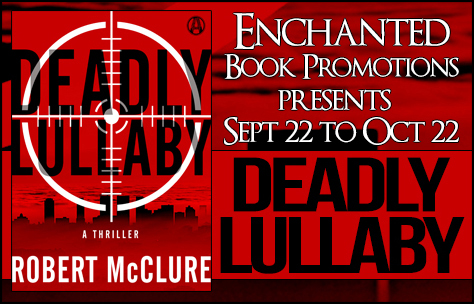
 RSS Feed
RSS Feed
